Background to the Bendigo Education Plan
The Bendigo Education Plan 2018 (BEP) is a collaboration between the Department of Education (DE) and a range of local community organisations. The development of the plan was facilitated by DE throughout 2017-18 via a steering group with broad representation from community organisations across the City of Greater Bendigo. Bendigo’s community contributed to the BEP through online and face-to-face consultations during 2017.
The BEP 2018 follows the BEP 2005. This plan focused on re-invigorating secondary education in Bendigo through the rebuilding of four junior secondary schools and through a focus on flexible, personalised and differentiated approaches to teaching and learning.
The BEP was reviewed in 2022, the BEP is guided by the following narrative:
Learners in Bendigo can say I attend and like school, it supports me to learn, my family supports my attendance and participation, I succeed in learning, my pathways choices are informed, and I am equipped to succeed in life.
Themes were agreed to guide the review:
- A learning and education culture across school, family, community, and industry.
- Aspiration and knowledge about careers, occupations and education pathways.
- Enhance student (young persons’) voice and agency.
The review involved significant consultation with a range of community stakeholders and in-depth analysis of relevant data sets about students’ attendance, disengagement and learning and wellbeing outcomes.
A Shared Vision and Objectives
The vision of the BEP is to see: all children and young people in Bendigo will become successful learners and resilient individuals who strive for excellence and who have the skills, knowledge and capabilities they need to lead active, satisfying and productive lives.
To realise the vision, the BEP has seven core objectives:
- Ensuring equitable access to quality programs, pathways and facilities: Children and young people in Bendigo will have access to a wide range of programs, pathways and post-school destinations that are relevant to their abilities, interests and aspirations.
- Building teacher and educator capacity to support and extend all students: Bendigo’seducators will be confident in their capacity to support and extend all learners to achieve excellence.
- Creating a culture of excellence for all: Children and young people will be confident and resilient in their learning, motivated and aspirational in their thinking, and capable in their actions, interactions, knowledge and skills.
- Enriching approaches to curriculum, pedagogy and assessment: Schools and services will provide access to relevant, inclusive, engaging and future-focused curriculum, supported by best practice approaches to teaching, learning and pedagogy.
- Strengthening supports for children and young people through key transition points in their learning: Children and young people in Bendigo will experience supported and individualised transitions at key points of change in their education from early childhood, through schooling and beyond to higher education, skills, training and employment.
- Partnering with families and carers as first educators: Families and carers will be actively engaged in working with Bendigo’s education providers to support children’s learning.
- Collaborating with community, business and industry to lift engagement, learning and developmental outcomes: The wider Bendigo community, including other service providers and industry, will be engaged with the education profession to promote quality learning and development outcomes for children and young people.
Work Streams
Department-led Work streams
These streams of work are led by DE Loddon Campaspe Area Office with support from schools and community stakeholders. They were identified through the BEP 2022 review.
| Work Streams | Objectives |
| 1. Careers and Pathways | Improve career options awareness and active career choice-making amongst students and provide curation and guidance to authoritative sources of, and access to, careers information for students, influencers and employers. |
| 2. Specialisation | Provide students with an additional (elective) discipline complementary to ‘core’ curriculum e.g. STEM, or an in-discipline extension to current offerings (e.g. Athlete Development Program and PE). |
| 3. Children’s University | Demystify and raise knowledge of university education and establish higher education as a viable option in students’ decision-making (aspiration) including those from disadvantaged backgrounds. |
| 4. Youth Voices | Confirm and understand the relative strength / impact of attendance, engagement and completion drivers – school, personal, in-home/community and develop options for better educational participation and completion. |
| 5. Parent Matters | Build the capacity of parents to have conversations with their children about education and career pathways and enhance their ability to support their children to make informed career and study choices. |
School-led Work Streams
These streams of work are led by BEP secondary school principals. They were agreed during a joint school review involving all five secondary colleges in 2022. The principals committed to pursuing this work in collaboration with one another.
| Work Streams | Objectives |
| 1. Careers, pathways and transitions | Build understanding of pathway options for students and support them to effectively plan for their senior secondary certificate studies and beyond. Improve Year 6-7 transition by developing consistent processes for sharing student information. |
| 2. Professional Learning Communities | Ensure quality teaching practice across BEP secondary schools by embedding a continuous improvement cycle through the establishment of evidence-based Professional Learning Communities. |
| 3. School Retention | Improve student retention by identifying and supporting students who may be at risk of disengaging from school particularly when transitioning from Year 10 to Year 11. |
| 4. Teaching and Learning | Improve teaching and learning by establishing consistent instructional and formative assessment practices. |
| 5. Trauma Informed Practice | Build teacher capability to consistently implement evidence-based, trauma-informed instructional practices across BEP schools. |
Governance
The main oversight body for the BEP is the BEP Reference Group. The group is chaired by the Regional Director, North-Western Victoria Region, DE, and meetings occur bi-annually. Membership is made up of a broad range of community stakeholders. Members include:
- School principals
- Bendigo Kangan Institute
- La Trobe University
- Bendigo Tech School
- City of Greater Bendigo
- Shine Bright Early Years Manager
- Bendigo Local Aboriginal Education Consultative Group
- Regional Development Victoria
- Department of Families, Fairness and Housing
- Goldfields Local Learning and Employment Network
- Australian Industry Group
- Australian Education Union
- Catholic Education Office
- Bendigo
- Anglicare Victoria
- Department of Education staff








